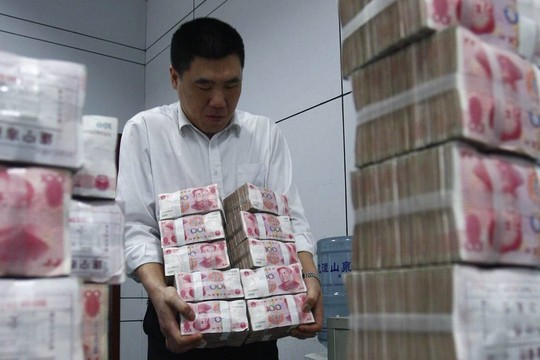Global companies are making a beeline for China's debt markets, issuing record amounts of yuan-denominated bonds and borrowing heavily from mainland banks, capitalizing on rock-bottom yuan interest rates as funding costs elsewhere jump. The surge in their borrowing from Chinese banks has catapulted the yuan past the euro into becoming the second-biggest currency used in global trade finance, providing a fillip to Beijing's ambitions to internationalize the yuan, Reuters informs.
Foreign companies such as German carmaker BMW and Crédit Agricole S.A as well as overseas units of Chinese firms raised a record 125.5 billion yuan ($17.33 billion) selling panda bonds during the January-October period, a 61 per cent jump from the same period last year.
The National Bank of Canada raised 1 billion yuan from the sale of a three-year panda bond at a coupon of 3.2 per cent late last month, a bargain compared to rates of 4.5 per cent at home.
The issuance of dim sum bonds in Hong Kong also hit a record high, surging 62 per cent from a year ago to 343 billion yuan during the first eight months. Issuance of yuan-denominated loans in the city also soared.
For China, the growing share of yuan in global financing ticks one of its main internationalisation priorities, though the recent burst of activity appears to have been overwhelmingly for domestic use.
The yuan's share as a global currency in trade finance jumped to 5.8 per cent in September from 3.91 per cent at the start of the year, trumping the euro for the first time, according to SWIFT. The international payments system dominates the traffic of letters of credit - a form of short-term financing that facilitates trade.
However, analysts point to the limited use and circulation of international yuan bond proceeds so far, and say it’s premature to trumpet internationalisation.
Yuan internationalisation "isn't going as well as the headline figures might suggest," said Mark Williams, chief Asia economist at Capital Economics.
"It's still the case that more than half of cross-border transactions using the yuan are between the mainland and Hong Kong. This is a very local form of internationalisation."
Countries that are geopolitically aligned with the U.S. "are showing no willingness to switch over to using the yuan. That suggests that global use of the yuan in trade will hit a low ceiling."
read more in our Telegram-channel https://t.me/The_International_Affairs

 11:49 22.11.2023 •
11:49 22.11.2023 •























